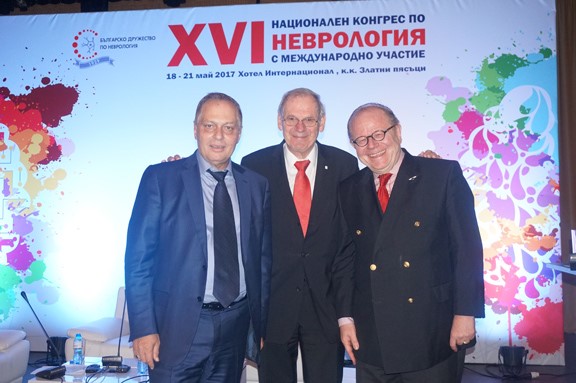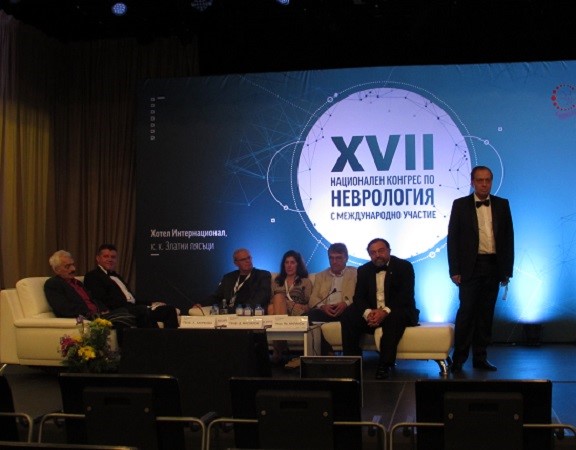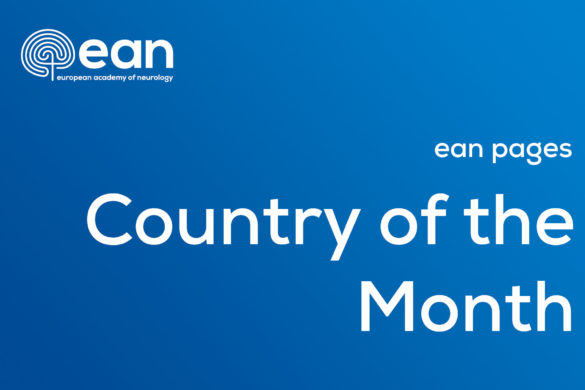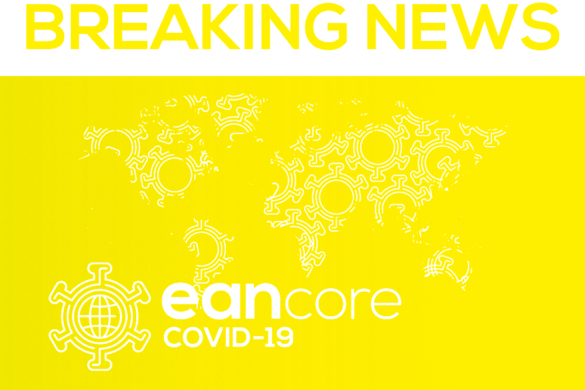Bulgaria is located in the Southeast of Europe, in the northeast part of the Balkan Peninsula, bordering the Black Sea. It occupies an area of 111,000 km² and it is a European, Balkan, Black Sea and Danube country. Bulgaria is a parliamentary republic with a population of 7.15 million people. Bulgaria’s first constitution was adopted in 1879 and was one of the most democratic constitutions of its time despite the previous almost five centuries of destroyed statehood.
The official language is Bulgarian, which is written using the Cyrillic alphabet, developed in Bulgaria during the 10th century. To note, Cyrillic is the third official alphabet of the European Union. The religion of most Bulgarians is Eastern Orthodox Christianity. Bulgaria`s capital and largest city is Sofia.
Plovdiv is the second largest city in Bulgaria. It is an important economic, transport, cultural, and educational center. There is evidence of habitation in Plovdiv dating back to the 6th millennium BCE, so it is one of the oldest cities in Europe. Plovdiv was selected as the Bulgarian host of the European Capital of Culture 2019.
Bulgaria has an amazing historical and cultural heritage with a huge number of archeological, architectural and historical monuments. In the lands of Bulgaria were born some of the earliest civilizations in Europe. Human remains found in Bulgaria have been excavated in the Kozarnika cave, with an approximate age of 1,6 million BP. The eneolithic Varna culture (5000 BC) represents the first civilization with a sophisticated social hierarchy in Europe. The golden rings, bracelets and ceremonial weapons discovered in Varna necropolis were created between 4,600 and 4,200 BC, which makes them the oldest gold artifacts ever discovered in the world. From Thracians, famous for their knowledge of mathematics, astronomy, medicine and arts, we have inherited valuable cultural monuments, including treasures (the Panagyursko, Rogozensko, and Valchitransko teasures) and temples (at Perperikon, Starosel, Kozi Gramadi, Begliktash).
The natural landscape of Bulgaria consists of large mountainous areas, river valleys, sunny plains, coastline along the Black Sea.
The country is also famous for its yoghurt and other natural products – rose oil, wines and brandies. The Bulgarian national costume, music and dances (horo) is an intrinsic part of Bulgarian lifestyle and culture.
The Ministry of Health in Bulgaria is responsible for national health policy and the overall organisation and functioning of the health system. The funding of the sector is principally through the compulsory health insurance system operated by the Bulgarian Health Insurance Fund. Health services are delivered by a network of various public and private healthcare providers. The general practitioner is the key figure in primary care, acting as a gatekeeper for specialised ambulatory and hospital care. Ambulatory care is also provided by single and group practices, medical and dental centres and independent medical diagnostic centres. Inpatient care is delivered mainly through a network of multi-profile and specialised public and private hospitals. The provided hospital care is done in the form of agreement “packages” or “clinical paths” paid by the national fund without any economic participation of the insured individual. The “clinical path” is a system of demands and behaviour instructions of the different medical specialties for the hospital treatment of patients with certain diseases.
Bulgarian Medical Universities are established to advance the education of physicians and scientists by creating and supporting a community of leaders in education. The higher education lasts for six years (the last semester is hospital practice) and students graduate with a Master’s degree. Bulgaria is a member of the European Union and the most prestigious universities in Bulgaria, such as the Sofia Medical University and the Plovdiv Medical University, are accredited. Several universities offer medical education in English language. There is a good collaboration between the Medical Universities and the University Hospitals in Bulgaria to provide the residents with a modern, useful, practical and theoretical education in Neurology.
It takes four years to become a neurologist in Bulgaria. To be admitted for training in “Nervous diseases” is required to have completed the education qualification Master’s Degree in Medicine and have the professional qualification of “doctor in medicine”. Residents who apply for the national exam to be specialized in “Nervous diseases” should know very well the anatomy of the nervous system and the neurological diseases. They have to familial with EEG, EMG, and doppler sonography. During the training period, the residents must acquire skills for independent work in ambulatory and hospital medical activity.
The Bulgarian Neurological Society was established in 1929 as a common Neuro-Psychiatric association. Neurosurgeons joined the association later but nowadays the society is an independent structure and has 90-year history as a leading scientific organization of the Bulgarian neurologists. The first chairman of the Bulgarian Neuro-Psychiatric Society was Prof. Nikola Krystnikov. Prof. A. Yanishevski was elected as the first manager of the Neurological clinic which was a part of the Medical Faculty in Sofia.
During the Second World war the functions of the Bulgarian society were ceased. In 1945, the “Neurologists and Psychiatrists Unit” as a part of the Bulgarian Medical Association was established. Its members created a framework of the model of specialization, academic education, establishing new wards and a register of psychiatric patients in Bulgaria.
In 1952, the Unit of Bulgarian Neurologists and Psychiatrists was a part of the National Association of Therapists with a leading chairman Prof. G. Uzunov. The total number of neurologists in 1985 was 152.
The National Scientific Medical Society of Neurologists and Psychiatrist was established in 1961 and was led by Prof. Uzunov. It had a wide approach to establishment of new neurological wards, pediatric neurology ward, neuro-infections ward, electrophysiological and CSF labs, otoneurology, neuroophtalmology and neurorehabilitation divisions. Neurosurgeons joined the Society in 1967. At that time, around 441 neurologists worked in the country and many outpatient clinics were created. Untill 1971 there were 14 regional branches all over the country and the biggest one was in the Sofia region. In 1971, the Society had 629 members and has held many national conferences. In 1980, the Neurological Society chose a new management board: Prof. P. Ovcharova, Prof. I. Georgiev, Prof. S. Bojinov and Prof. V. Mitkov. There was a close collaboration with other specialists from different areas of medicine as well as international organizations connected with neurology. There were 948 neurologists in Bulgaria in 1983. There was a close partnership with colleagues from the South-Eastern European Association and Danube Symposium. Many national and international meetings and exchange of post-graduate students with Western countries were organized. There were several structural changes in the management of the Society till 1990. In 1992, the children’s department of Neurology and Psychiatry separated as an individual society. In 1999, the Society chose a new leader: Prof. P. Stamenova who was the chairperson till 2011 when Prof. I. Milanov took her place as the head of the Society.
The first printed edition of the Bulgarian Neurological Society’s publication was the journal Neurology, Psychiatry and Neurosurgery. It has been printed for the first time in 1964 and for the last time in 1992.
In 2001, the journal Bulgarian neurology became the main printed organ of the Society. Two other journals have been published after 2004: Movement disorders and Cephalgia, official journals of Bulgarian Movement Disorders Society and Bulgarian Headache Society.
Nowadays many leading neurologists from all over the world are participating in our national congress.
Next year Bulgarian Neurological Society will celebrate its 90-year Anniversary. Nowadays there are around 800 neurologists in Bulgaria, more than 500 being regular members of the Bulgarian Neurological Society. The Society is an organization that has scientific and practical purposes. The mission of the society is to become an organization that conducts a policy in the field of neurology and health. The priority tasks are to establish regional structures of the company and to protect the interests of neurologists, to organize the continuous training of neurologists according to the European standards, to organize training for general practitioners, to strengthen the contacts with other Neurological Societies in the world, to present the problems of neurologists to the healthcare institutions in order to improve working conditions. Since 2011, the President of the Bulgarian Neurological Society is. Prof. I. Milanov. He is the Director and a Professor at the leading and the largest on the Balkan Peninsula University Neurological Hospital “St. Naum” in Sofia and Academic of the Bulgarian Academy of Sciences.
Two well-known scientific teams with international reputation are working at the University “Aleksandrovska“ Hospital in Sofia.. Prof. L. Traykov is working in the field of dementia in which area he is recognized as a leading specialist in Bulgaria. His team first established a set of early detection markers using neuropsychological batteries for dementia in Alzheimer’s disease, Parkinson’s disease and cerebrovascular diseases. The team of Prof. I. Tournev is working in the field of neurogenetics and have discovered 13 new genetic disorders of the central and peripheral nervous system and muscles. Не has created a multidisciplinary team, encompassing neurologists, geneticists, cardiologists, gastroenterologists, anaesthesiologists, pulmonologists, and physiotherapists with a rich experience in the diagnosis, treatment and follow up of patients with genetic neuromuscular disorders.

Acad. Prof. Milanov, XVII Bulgarian National Congress in Neurology, 2018
Bulgarian Neurological Society hosted a lot of international activities. The biggest scientific and social event in the country is the Annual National Congress of Neurology with international participation. It is widely visited from all over the country. The aim of the forum was to present the latest updates in neurology presented by leading specialists. Various areas such as cerebrovascular diseases, headache and pain, multiple sclerosis and demyelinating diseases, neuromuscular diseases, genetic and degenerative diseases of the nervous system, diseases of the peripheral nervous system, spinal-cerebral pathology, congenital malformations of the nervous system, epilepsy and sleep, disorders of cognitive functions, interdisciplinary problems were discussed. A scientific session for the medical nurses with training modules, lectures, presentations and a poster session was regularly held. In recent years, the National Congress was attended by more than 800 professionals and more than 500 posters participated in the poster sessions. At the initiative of the Bulgarian Society of Neurology, the National Conference of MedicRON Rheumatology, Oncology and Neurology has been jointly organized for three consecutive years. There, the three significant majors are joined to discuss the progress in the fields of rheumatology, oncology and neurology.
In addition to the national congresses and conferences, we organize academies and educational programs for colleagues, where we invite foreign lecturers to share experiences.

Acad. Prof. I. Milanov, Prof. G. Deuschl and Prof. D. Dressler, XVI Bulgarian National Congress in Neurology 2017

Acad. Prof. Milanov and members of the Management Board of Bulgarian Neurological Society, XVII Bulgarian National Congress in Neurology 2018
The Bulgarian Neurological Society has a website where up-to-date information about the activities of the Society, the organized scientific events in Bulgaria and abroad, and other important and hopefully useful information is being published.
The Bulgarian Neurological Society has been in a very close relationship with the European Academy of Neurology (EAN). Our community was widely represented at the congresses of the EAN as well as at a number of congresses and international meetings on major neurological diseases: parkinsonism, multiple sclerosis, stroke, neuroinfections, headaches and others. The Society stimulates the participation of young Bulgarian neurologists at the Academy of Young Neurologists as well as in competitions for the development of scientific topics in leading European neurological clinics. Our Association is also a member of the World Federation of Neurology (WFN) as well as of the Union of the European Medical Specialists (UEMS).
by
Dr. E. Chorbadjieva
Dr. H. Paunova
Assoc. Prof. Dr. D. B












